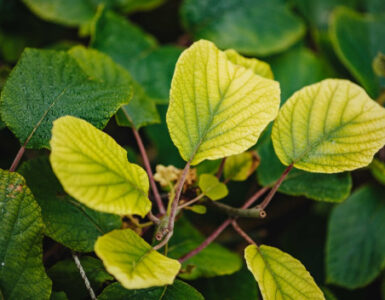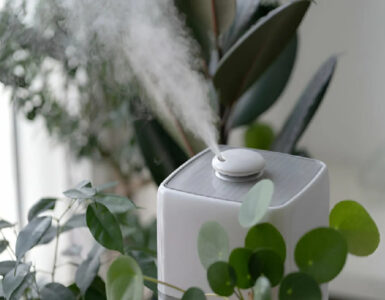If you are keen on organic gardening, used coffee grounds can benefit your garden in many ways. You can use them as mulch, fertilizer for some plants, a natural pesticide, and more.
Below, we will expand on these and other common uses of coffee grounds in the garden.
1. Add to Compost
By composting coffee grounds, you’re in effect adding nitrogen to the compost [1]. This remedy complements other organic materials and produces a fertile soil amendment.
To compost coffee grounds, throw them in your compost bin and mix them well. A good measurement is to put in one-third of the coffee grounds with the same amount of grass clippings and dried leaves.
Coffee filters can also be composted, and it might be a good idea to ask the local coffee shop or café for any leftovers.
2. Fertilize with Coffee Grounds
Coffee grounds work well for plants that grow in neutral to slightly acidic soil. You can use them to fertilize the soil around these plants.
To use coffee grounds as fertilizer, sprinkle them on the soil around plant roots and leave them there.
You can also make homemade coffee grounds “tea” for your plants. Just add two cups of used coffee grounds to five gallons of water. Then, let it steep overnight.
Finally, use the solution as a liquid fertilizer for your plants.
3. Repel Slugs and Snails
Coffee grounds are an excellent natural repellent for slugs and snails.
Their gritty texture and strong odor help keep these pests at bay. However, a potent caffeine solution works better, as it poisons them.
To use coffee grounds as a slug repellent, sprinkle some on the soil around the affected plants.
You can also make a caffeine spray for slugs and snails from freshly brewed coffee. Combine one part brewed coffee with nine parts water [2]. Spray it directly on the pests and plant foliage.
4. Cat Repellent
It is said that coffee grounds make excellent cat repellents. Cats dislike the smell of coffee.
Therefore, sprinkling fresh, wet coffee grounds in the areas cats use as litter trays may deter them. You can also sprinkle some around the borders of your garden.
Coffee grounds are also thought to repel rabbits and squirrels, so this method is worth a try to protect lettuce and other garden vegetables.
5. Grow Mushrooms
Another way to use coffee grounds for gardening is to grow mushrooms.
Growing mushrooms can be tricky. However, oyster mushrooms grow well on coffee grounds [3].
Used coffee grounds have nitrogen and nutrients such as potassium, magnesium, iron, and phosphorus. Moreover, they are naturally sterilized in the brewing process.
6. Add to Your Worm Bin
Unlike cats, slugs, and snails, worms love coffee grounds.
Coffee grounds in the vermicomposting bin are a great addition to helping earthworms thrive. They need some gritty food to help with digestion.
Therefore, add some used coffee grounds to your worm bin.
You will also attract earthworms to the soil when the compost is added. The earthworms will, in turn, help improve soil structure after they’ve deposited what they’ve consumed deep into the soil.
7. Use as a Mulch
You can add composted coffee grounds as mulch to your vegetable garden or flower bed. Spread around the base of the plants, they provide a nutrient-rich mulch.
Composted coffee ground mulch helps acid-loving plants. This includes azaleas, gardenias, rhododendrons, and root veggies like carrots.
However, avoid using it on plants that do not like acidic soil.
8. Repel Ants
Coffee grounds repel ants rather than kill them. These common insects do not like the scent and acidity of the grounds.
Therefore, sprinkling coffee grounds in ant nests and areas like doorways will drive ants away.
Plants That Like Coffee Grounds as Fertilizer
Fruit trees and vegetables that thrive with composted coffee grounds are:
- Blueberries
- Carrots
- Elderberries
- Peppers
- Cucumbers
- Tomatoes
- Sweet potatoes
- Radishes
Other plants that benefit from coffee grounds are flowers and shrubs, like zinnias, camellias, azaleas, rhododendrons, and hydrangeas.
Some houseplants and potted plants also benefit from coffee grounds when used as mulch, pesticide, or fertilizer.
Takeaway
As you can see, there are many benefits to using coffee grounds in the garden. So, do not throw away your used coffee grounds. Try incorporating them into your garden instead!








Add comment